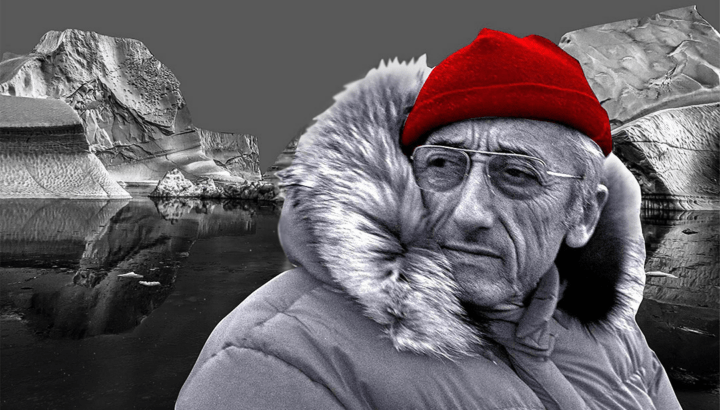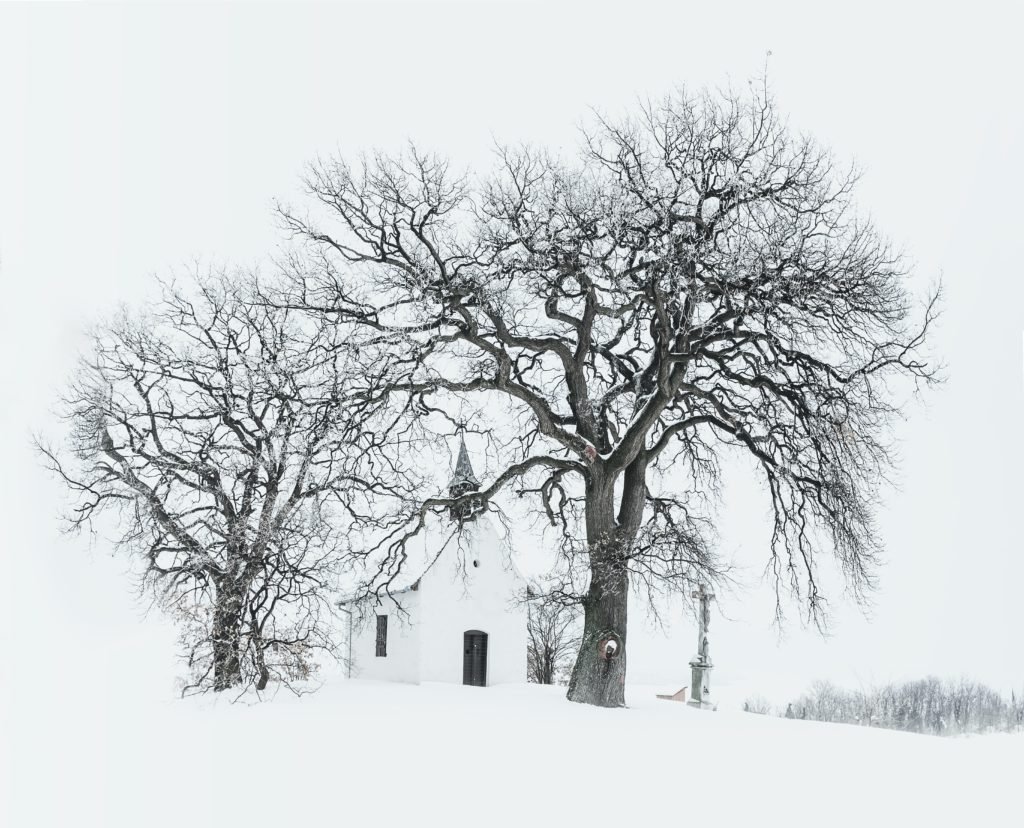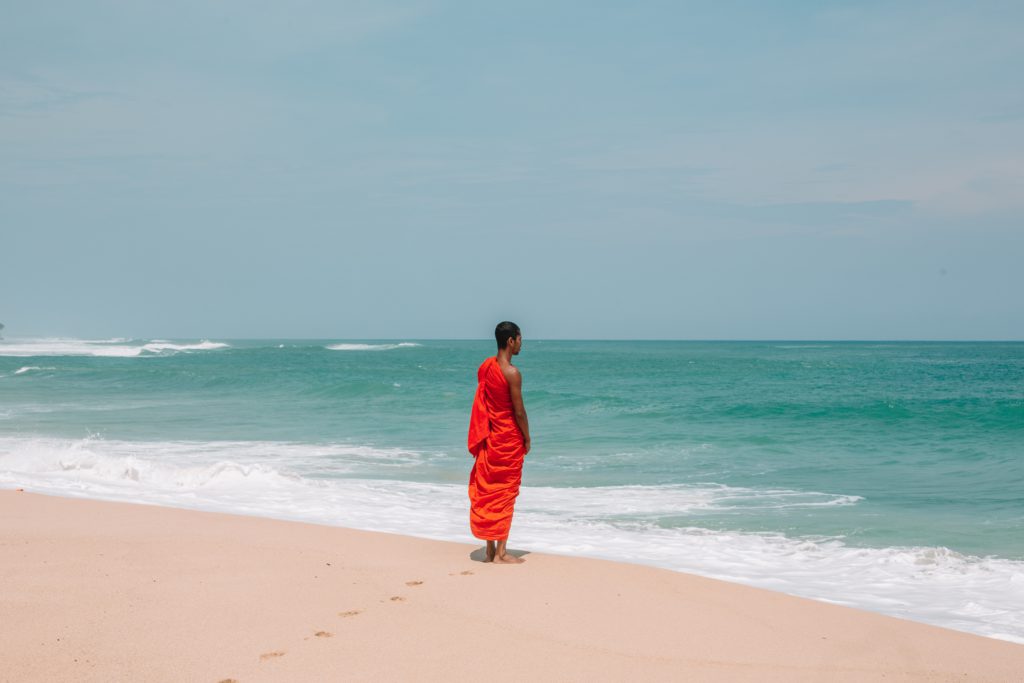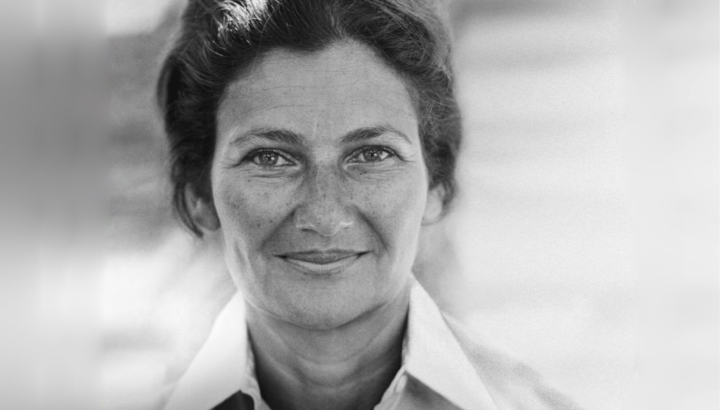
Jacques Cousteau: Dive with Noble Purpose
“The sea, once it casts its spell, holds one in its net of wonder forever.” Jacques Cousteau In an era when technology was beginning to shrink it, Jacques Cousteau expanded the world. […]

Much more than a religious tradition, fasting has become a much-needed way of living. One where we learn how to go back to our core and to what really matters. One where we accept that in order to become more, we have to do less, or at least differently.
Lent, which started on Ash Wednesday, is the period of 40 days which comes before Easter in the Christian calendar. It’s an important season of reflection and preparation before the celebrations of Easter. By observing the 40 days of Lent, Christians replicate Christ’s sacrifice and withdrawal into the desert for 40 days.
Fasting is of course not only a Christian tradition, but also one for the Muslims who have Ramadan, for the Jews who have Yom Kippur, and for several other religions and spiritual movements. Some cultures even fast for non-religious reasons. The town of Geneva has the ‘Jeune de Genève’. This public holiday of fasting originated in the Middle Ages when some days were officially decided to be fasting days as penitence after calamities such as wars, epidemics, or the plague. Other non-religious modern fasting initiatives are the days without alcohol, or sugar, or coffee, or social media, or wifi, or cars.
Interestingly, all fasts have the similar goals of, in one or another way, either showing sacrifice or cleansing oneself.

All the imposed restrictions due to the COVID-19 pandemic lockdowns have nothing to do with a fast, but are a limitation of our much needed and valued freedom. These restrictions are imposed upon us — I truly hope for some good reasons — and are not coming from our free choice. We have to do what our governments tell us to do, with the risk of being fined or even get imprisoned. So much for democracy!
That’s why there has been so much stress, confusion and psychological distress for months. We, predominantly free human beings, don’t feel free anymore because we can’t do what we were used to do: meeting friends whenever we feel like it, dining or going out, traveling for pleasure, going to the movies or a concert, organising a party, etcetera. We have to accept a way of living that is, even if temporarily, pushing us to our limits of acceptance, tolerance and much needed balance. It is felt as something coming from ‘above’ and not something that we have decided.

In the current times it’s highly recommended to take a deep dive and care for ourselves, for what we need and decide what we can let go of.
That’s why I see fasting as a personal decision and conscious choice. Something that we decisively want because of the benefits we see as a result from that fasting. Benefits can be spiritual (e.g. more alignment, more inner peace, feeling at ease by respecting a tradition that is part of who we are, …), physical (e.g. losing weight, boosting our energy levels, getting fit for a competition or an important life event, …) or mental (e.g. reducing the ‘on’-time by cutting down social media activities, putting thoughts and priorities in order, change the way we look at things, …).
We have to want it out of free will, because fasting requires clear intentions, a considerable amount of courage and full dedication. No-one will be able to carry on and bring the fasting to a fruitful end if we’re not clear about our ‘why’. See it as a form of self-discipline to keep our intention of fasting lasting until the end.
Hence fasting is taking care of ourselves. It’s respecting ourselves. It’s a way of slowing down, of reviewing our routines (of too much of too many things), of stepping out — at least temporarily — of the rat-race in which we got caught, of reviewing the transactional approach we felt we had to life, to others and to ourselves.
If fasting is imposed though, with no distinction between externally, for example by a cultural-religious tradition or a pandemic lockdown, or by our-selves, for any of the above-mentioned reasons, it becomes a fight. A battle against something we have to do or should let go. And fighting against something, when it’s not a free choice, will lead to very mediocre results, or worse, to getting more stuck in that what we wanted to get rid of or fight against. So, fighting against the self is not a good scenario! And yet …

There are indeed so many desires in our hearts and minds. Desires we have to address if we want to progress. Often these desires are contradictory ones. There are those desires that are good and bring us closer to what we as humans are deeply called to do. There are also those in which we alienate us from ourselves and others. In order to feel free, we must limit our need for ‘addictions’ and simplify our Life. We have to make choices about what is really essential and important for us. The same way as the old man explained to his grandson.
An old Cherokee is teaching his grandson about life. “A fight is going on inside me,” he said to the boy. “It is a terrible fight, and it is between two wolves. One is evil: he is anger, envy, sorrow, regret, greed, arrogance, self-pity, guilt, resentment, inferiority, lies, false pride, superiority, and ego. The other is good: he is joy, peace, love, hope, serenity, humility, kindness, benevolence, empathy, generosity, truth, compassion, and faith. The same fight is going on inside you, and inside every other person, too.” The grandson thought about it for a minute and then asked his grandfather, “Which wolf will win?” The old Cherokee simply replied, “The one you feed.”
The wolves could be a picture of the contradictory voices we have inside us. The voice that calls us to keep doing what we’ve always been doing and paying attention to. Or the voice that invites us to take some distance, step out of our routines, and even review the journey we’re on. In order to be able to choose with consciousness, we need to attain inner calm, clarity of the mind and positivity of our intentions.
Which wolf are you feeding these days? Which wolf do you want to ‘win’?
Even if the current times are tough and demanding from all of us, I believe that it’s also the right time to look at the essence. That is true from an individual perspective but also from a societal perspective. What do we as human beings want to be after the pandemic is gone? What kind of society do we want to become once the lockdowns and restrictions are over?
The time to review what we pay attention to (read: the wolf that we feed most), what distracts us too often, how we interact with ourselves and with others, is now!
The time to decide what kind of society we want to become, what kind of economy we will need, what kind of vision we will have about working, creating adding value and increasing the human potential, is now too!
The time to start working on reducing the inequalities between the different social layers, between minorities and majorities, between those who have access to information and education, and those who have not, is also now!
Therefore, taking the right time — whether that is the 40 days from the Christian tradition, or any other approach, doesn’t matter — to fast, to review our personal, societal and economical ‘operating model’, to go the essence of who we as human beings, as a society and as an economy want to be, is a welcome way to respect ourselves, our society and our economy. As long as it is coming from free will and a conscious choice!
Do you practice lent or any kind of fast? Have you tried one of those no-alcohol or no-wifi for a month challenges? What did you learn? Would you do it again?

“The sea, once it casts its spell, holds one in its net of wonder forever.” Jacques Cousteau In an era when technology was beginning to shrink it, Jacques Cousteau expanded the world. […]

“Born in 1927 in Nice, France, she was just 16 years old when the Nazis stormed into her life, tearing her family from their home and dragging them into the dark abyss […]

“Is there another way beyond our traditional understanding of managing transitions while change happens?” Kushagra Patwa, Head of Spiritual Advisory Introduction Three leadership skills explored that have resonated deeply with me: ‘Change […]